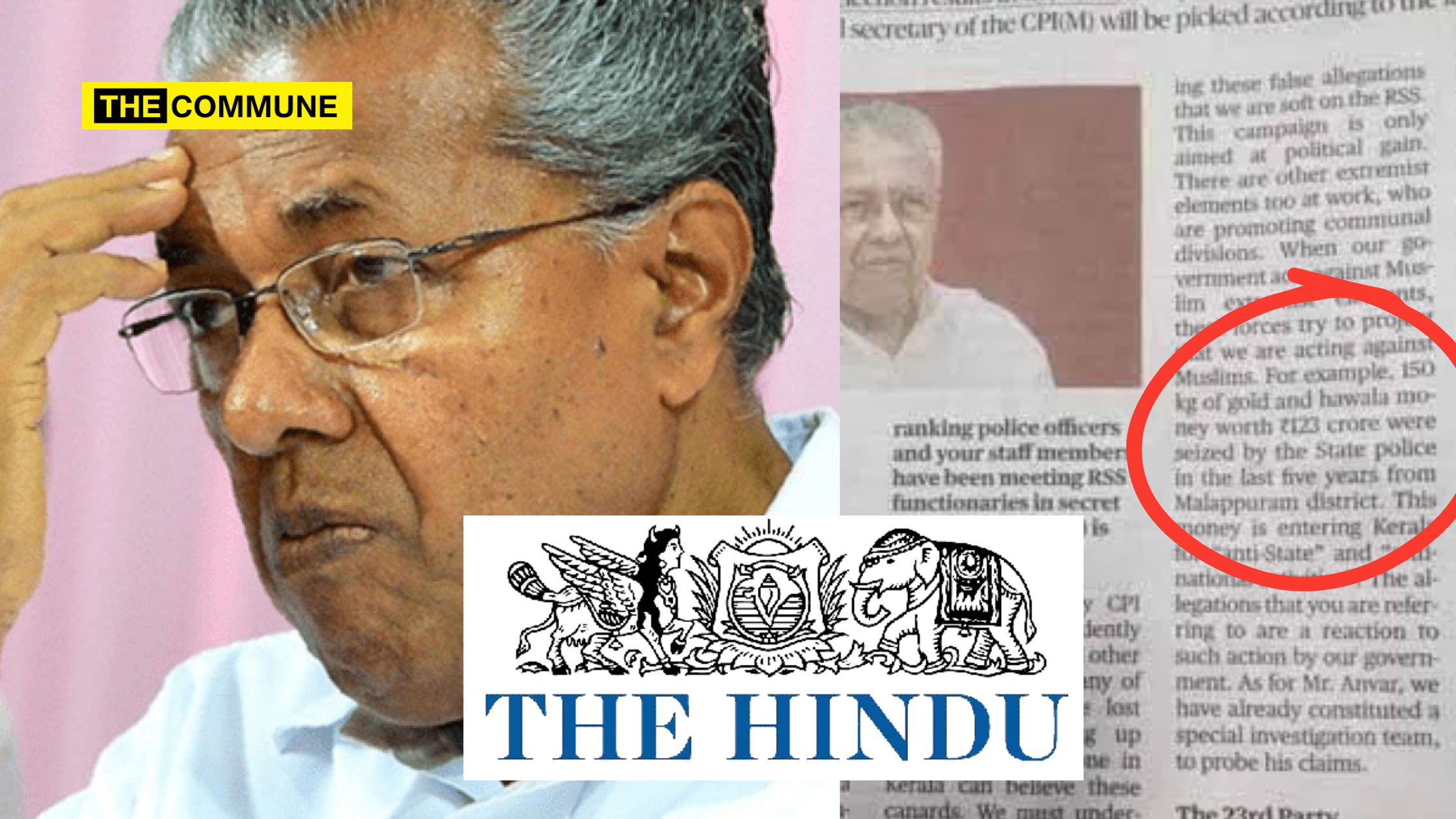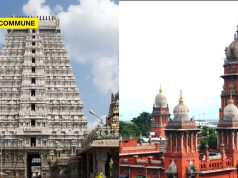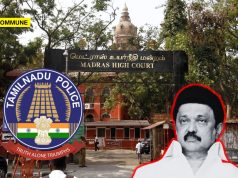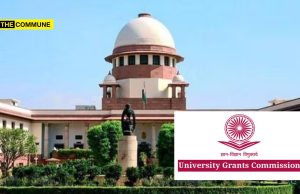
The Hindu recently published an interview with Kerala Chief Minister Pinarayi Vijayan in their daily which stirred controversy for some of the comments. It later came to light that the statements made by Vijayan “linking hawala money seizures from Malappuram to Muslim extremists for orchestrating anti-State and anti-national activities“, as published in The Hindu, were allegedly added at the request of a PR agency.
What Was The Interview About?
Vijayan addressed various political and organizational issues after the 2024 general election in this interview. The Central Committee’s review highlights a loss of traditional voter support to the BJP. However, he refuted the claim that it failed to counter Hindutva politics, attributing the BJP’s rise in Thrissur to Congress losing significant votes rather than CPI(M) support shifting to the BJP. When asked about the BJP’s potential emergence as a third force in Kerala’s bipolar political landscape, he downplayed the notion. Still, he acknowledged the BJP’s increased vote share, emphasizing their long-term strategy for Kerala and that the CPI(M) is introspecting whether the BJP gains came at its expense but is not yet alarmed.
What Was The Controversy & What Was In The Original Interview?
As of today, the Hindu has edited out the content in their online portal. It has removed the statements added in the published interview linking hawala money seizures from Malappuram to Muslim extremists for orchestrating anti-state and anti-national activities. As reported in Kerala Kaumudi, the statements are as follows:
“False allegations are being raised that we have a soft approach towards the RSS. This propaganda is aimed at political gain. Other extremist elements are also at work promoting communal divisions. While the government of Kerala is working against Muslim extremist elements, these forces are trying to highlight that we are working against Muslims.
For example, 150 kg of gold worth Rs 123 crore and hawala money were seized by the state police force in Malappuram in the last five years. This money reaches Kerala for anti-national activities. As for Anwar, we have already constituted a special investigation team to investigate his claims.”
Aftermath Of These Statements
The Congress-led United Democratic Front (UDF) in Kerala intensified its demand for an apology from Chief Minister Pinarayi Vijayan for allegedly defaming the people of Malappuram by associating them with contraband and hawala activities. V.D. Satheesan, the Leader of the Opposition, criticized Vijayan for making baseless accusations, which he argued aligned with the Sangh Parivar’s divisive rhetoric against minorities. Satheesan also linked the rise of gold smuggling in Kerala to Vijayan’s first term, highlighting the arrest of M. Sivasankar, Vijayan’s former Principal Secretary, as a result of a central investigation into gold smuggling.
Ramesh Chennithala, a member of the Congress Working Committee, accused Vijayan of deepening communal tensions by unfairly blaming Karipur airport in Malappuram for smuggling. He argued that the smuggling issue worsened after the Union government raised gold import duties. Meanwhile, BJP State President K. Surendran accused Vijayan of retracting his earlier comments about anti-national forces being behind gold smuggling due to fear of alienating fundamentalist groups. In response, Vijayan denied linking any specific region or community in his statements.
Pinarayi Clarification
Chief Minister Pinarayi Vijayan clarified on 1 October 2024 that he did not mention any specific region or community in his interview with The Hindu published on 30 September 2024. He stated, “The newspaper had included a portion that I had not said, which led to a controversy. The newspaper has by now given an explanation and has admitted to the lapse.“ He further acknowledged The Hindu as a responsible media outlet, expressing uncertainty over how the mistake occurred.
Addressing the issue of gold smuggling, Vijayan explained, “The maximum gold smuggling in the State takes place through the Calicut International Airport. But since the airport is located in Malappuram district, they are registered as cases from Malappuram. This does not mean that only people in Malappuram are resorting to gold smuggling.”
The Hindu Issues Apology
The Hindu formally apologised for including statements in an interview with Kerala Chief Minister Pinarayi Vijayan that were not part of the original conversation. The newspaper admitted that the additional remarks were inserted at the request of a PR representative from Kaizzen, the agency that facilitated the interview. The PR representative had requested the inclusion of comments regarding gold smuggling and hawala transactions in Malappuram, allegedly linked to anti-State activities, which the Chief Minister did not originally state during the interview.
The newspaper acknowledged this as a serious lapse, stating, “This should not have happened, and we unreservedly apologise for this serious error of judgment on the part of the reporter and for the lack of editorial oversight in this instance.”
According to The Hindu, the interview was conducted on 29 September 2024 at Kerala House in New Delhi, lasting approximately 30 minutes. Two PR representatives were present alongside the Chief Minister during the session. Following the interview, one of the PR representatives requested the addition of remarks that the Chief Minister purportedly made in a previous press conference. The Chief Minister’s press secretary later disowned these lines.
This editorial doctoring by The Hindu would not have come to our notice if not for the negativity Pinarayi Vijayan received because of that. Shocking to hear that they would insert some sentences suggested by a PR person to a supposedly exclusive face-to-face interview. pic.twitter.com/2ArWFCCPXN
— Badri Seshadri (@bseshadri) October 2, 2024
This editorial alteration by The Hindu would have gone unnoticed had it not been for the backlash faced by Chief Minister Pinarayi Vijayan. The fact that a prominent publication would insert statements suggested by a PR representative into a supposedly exclusive face-to-face interview raises troubling questions about the integrity of journalism. Such actions blur the lines between factual reporting and external influence, undermining readers’ trust in the media.
By allowing external parties to alter the narrative, The Hindu has unintentionally compromised the objectivity expected of responsible journalism. This incident not only damages the newspaper’s credibility but also sets a dangerous precedent for editorial content being influenced by those with vested interests. In a time when media transparency is critical, this lapse highlights the need for stricter editorial oversight and accountability to safeguard the integrity of news reporting.
Subscribe to our Telegram, WhatsApp, and Instagram channels and get the best stories of the day delivered to you personally.




